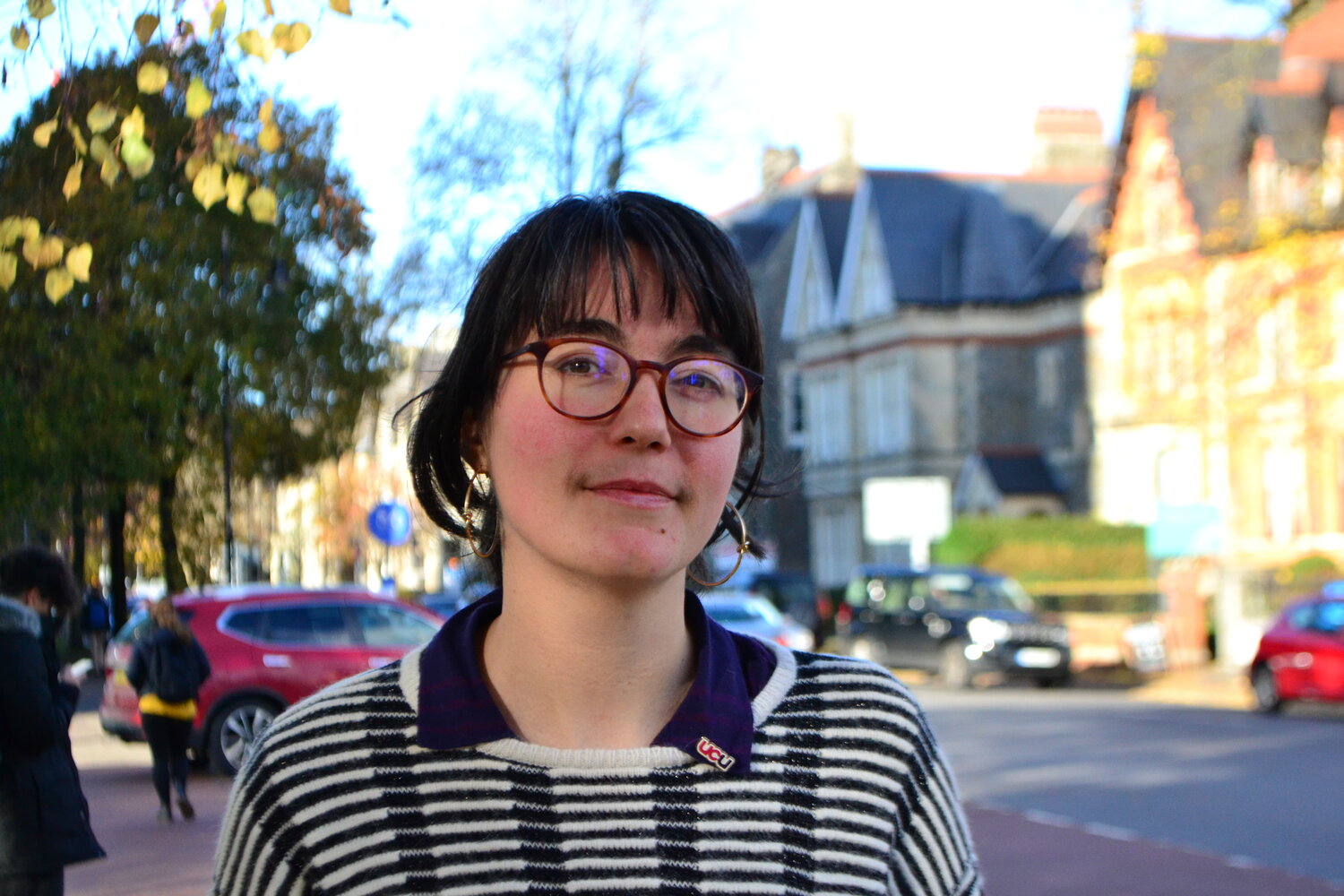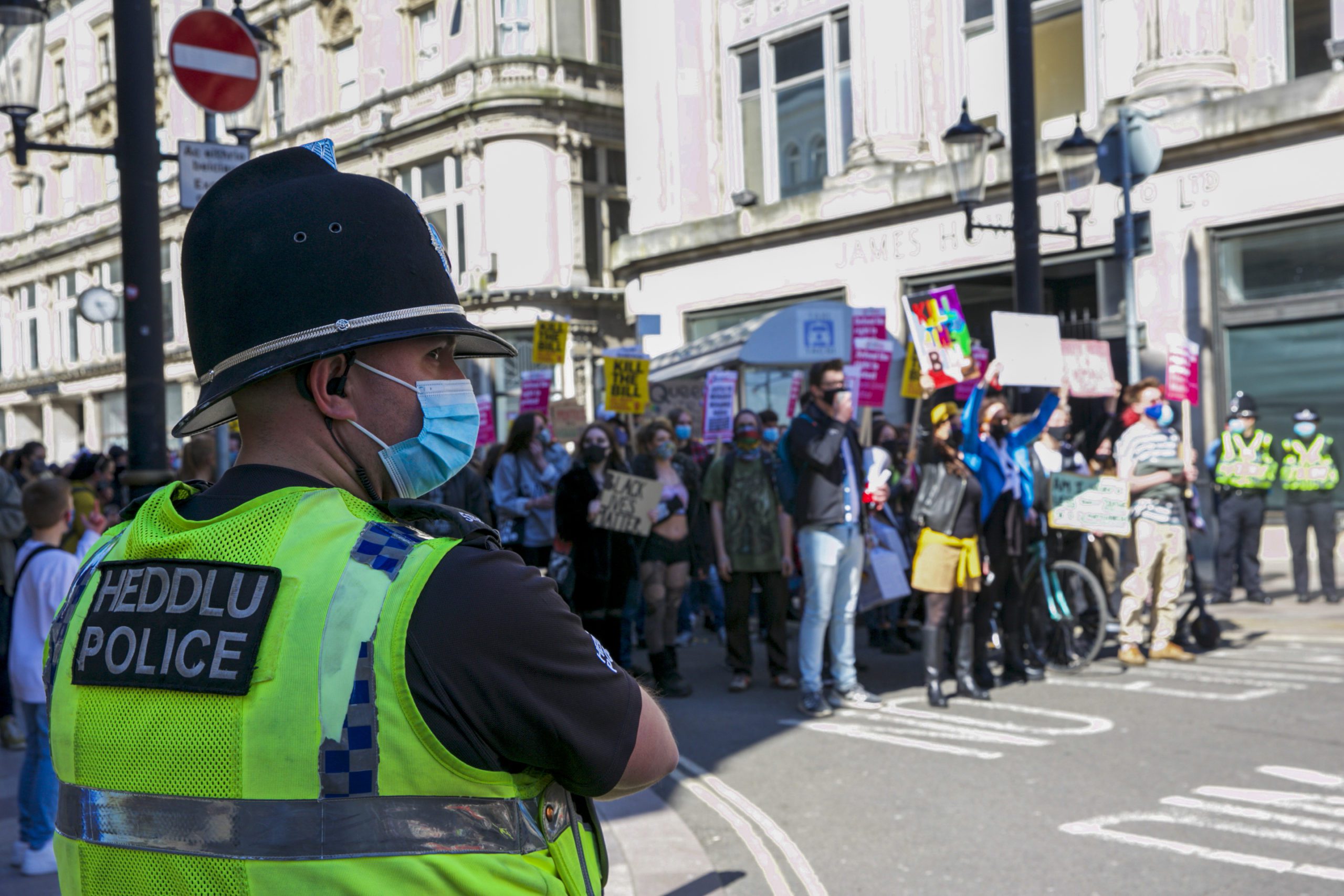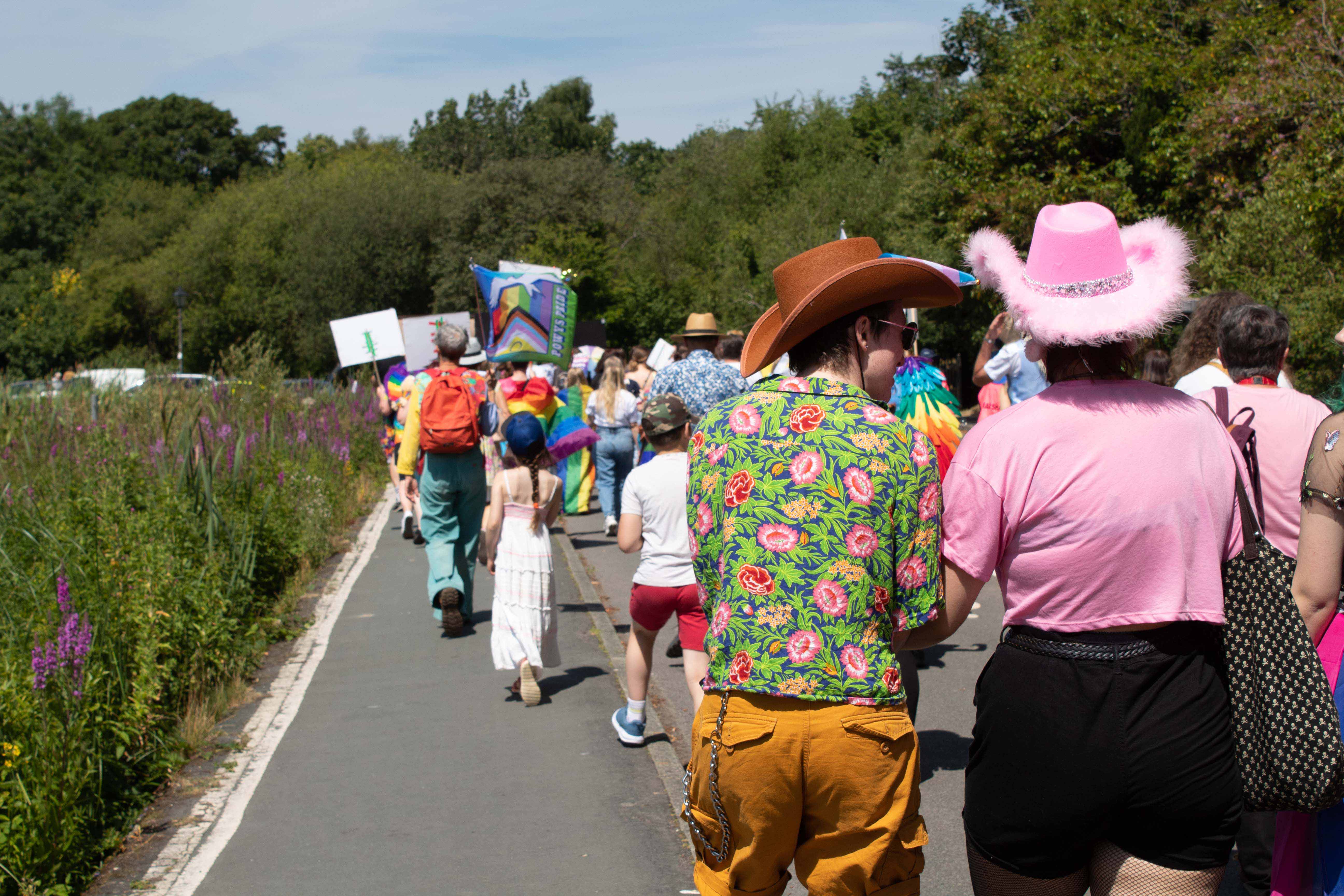
“Pride is The Antithesis of Shame”: Hundreds Gather at Powys’ First-ever Pride Festival
A group of volunteers came together to bring the queer community of rural Wales under one roof to tackle homophobia and isolation – in their own way.
Words and images by Oojal Kour
For over two decades, Shaun Griffiths barely saw another queer person around him. He was isolated from the LGBTQIA+ community because it was non-existent in his little rural town in Wales. It was already difficult enough to live without the fear of being ostracised from society, but to not have people he could socialise with and share his experiences, it proved to be even more challenging. This is when he realised that something needed to change – this was the genesis of the first-ever Powys Pride.
“I’ve lived in Llandaff for over 20 years now. I know other people and how isolated they are, even from within communities. I thought we need to do something about that,” says Shaun, who runs Mind, an LGBTQIA+ peer support network across Mid and North Powys. “This is a chance for us all to come together. I’m hoping now people can see that there is a vibrant LGBTQIA+ community in Powys.”
Powys held its first-ever Pride event on 16th July, in Llandrindod Wells, attended by more than 300 people from all around Wales. The day-long event was kickstarted by a parade at the Lakeside Boathouse, followed by an arts and culture festival, which was concluded at the Pavilion by drag artists-led performances from Polly Amorous, Pixi Perez, and Absolute Britney.
Organising a Pride event in Powys, the largest and most rural county in Wales, proved to be difficult for Shaun – it was nearly four years in the making and was cancelled twice due to the COVID-19 pandemic. Moreover, hosting a multitude of events and workshops, and bringing renowned queer artists to Llandrindod Wells – his biggest concern was building a volunteer team from scratch in a place where the LGTQIA+ community was barely visible.
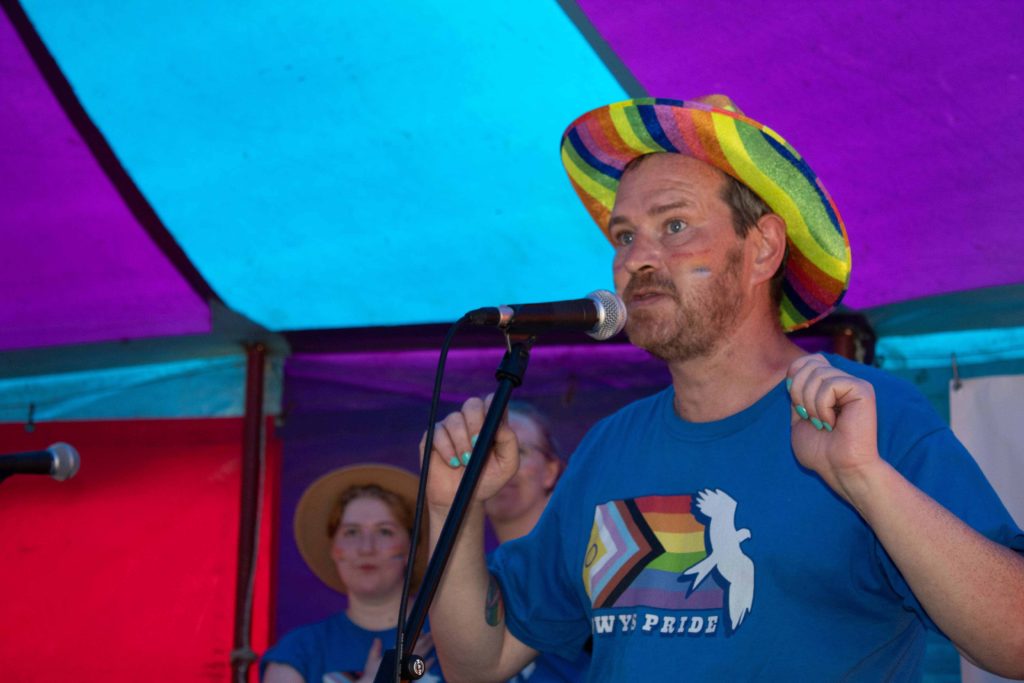
Seren Edwards, who is part of the Powys Pride planning committee, acknowledges this problem. She says, “The LGBTQIA+ community in Powys is in the shadows, it’s not very well represented. It being a rural area, everybody is spread very thinly. Unlike in a big city where you have dedicated areas and facilities, there’s not so much here.”
Special effort was made to overcome these inconveniences. Ivy Taylor, who is part of the organising committee says, “We wanted this daytime event to be free and to remain free because we want this to be as accessible as possible for years to come. And going forward, we’re going to look at branching out and getting to those people in the farthest corners who are struggling the most to access this community.”
The festival had a range of free events from a queer history exhibition area, book and poetry reading, history talks, a kid’s area, charity and local business stalls, and a wellbeing support centre for mental health.
Mair, historian and writer behind Queer Welsh Stories on Twitter believes that Powys Pride did well to highlight queer history that exists in and around Powys, with a Queer Powys History timeline and a chart of Monumental Welsh Woman. Mair, who lives in rural Wales, wishes for more such events in the future.
“Powys Pride was a great opportunity to see a lot of my LGBTQ+ friends in one place, as well as meet some new people, but it also highlighted for me that there should be more LGBTQIA+ safe spaces to be able to do that more often,” Mair says. “There is still a long way to go with transphobia and homophobia in Mid Wales.”
According to Stonewall, one in five queer people in Wales have experienced homophobia in social spaces. With the increase in hate crimes in the last few years, it has become difficult for queer people to feel comfortable in their identity in public.
“From what I can see living here, it is harder to come out and stay here while being LGBTQIA+,” Mair says of rural areas “Increasingly, there are transphobic stickers, flyers, and posters. Hopefully, more LGBTQIA+ events and groups can help make it safer for people to live in rural Wales.”
Ivy, who grew up in Powys, had faced extreme bullying and rejection when she came out as bisexual at 15, which led her back into the closet till the age of 31. After moving to Brighton for three years, she finally found a supportive queer community and was able to accept herself.
She shifted back to Powys soon after and has been living there since. “I came out as trans just over a year ago and I’ve been living openly as trans in a rural part of Wales perfectly happily, in a way, which 15 years ago, I didn’t feel it was possible. I didn’t feel like this was a place where I could be safe and be me, so I left. I’ve come back because I love this place. And you know what? Turns out, it loves me too.”
But Ivy also understands the problems that arise with being queer in a rural area. “It is hard in a different way to be queer in a rural community than it is to be queer in a city,” she says. “A lot of that comes down to population density. There are fewer queer people, we are further apart, it’s harder for us to kind of build those connections and create spaces.”
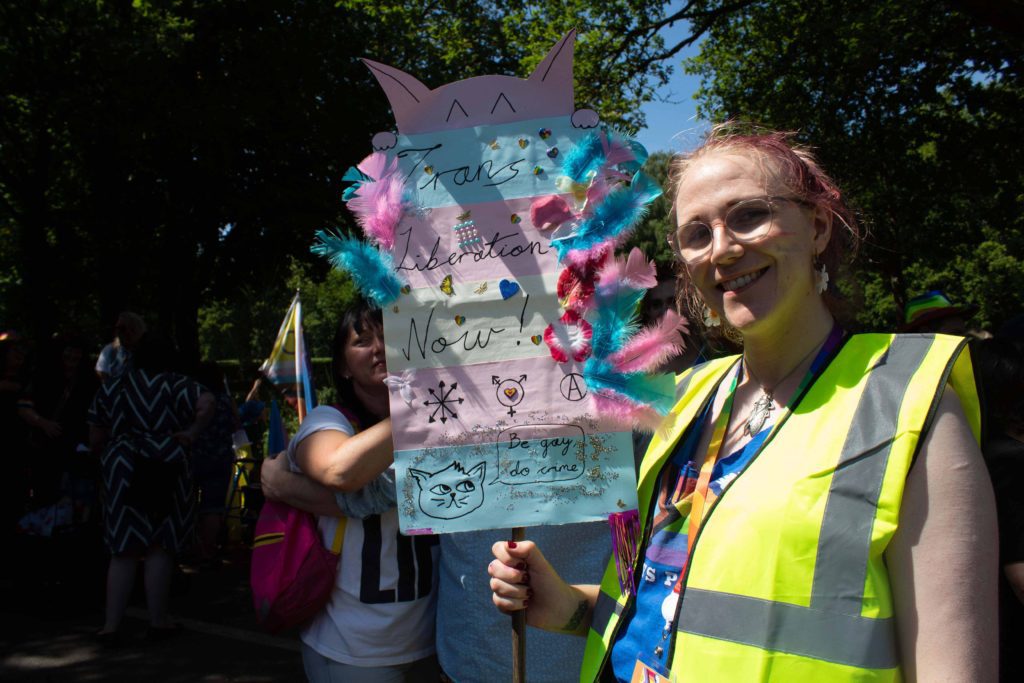
However, a new Stonewall report records that Wales is the most friendly and accepting place in the UK for queer people. Ivy hopes that this is demonstrated through Powys Pride to break the notion that all rural communities are backward thinking. “You come to Powys’ first ever Pride event, and you’re like, actually, it’s an amazing, supportive, vibrant, excited community,” she says.
Martin Brooks had a similar experience. Martin used to live in the county 30 years ago, but this was the first time he was able to dress in a skirt here. It was easier to dress the way he wanted in a big city like Cardiff, but it was difficult to imagine doing this in Powys. But he says Powys Pride gave him the confidence to do so today, and in the future as well.
This event was different from anything he has ever attended before. During the Pride march, bystanders were applauding and waving as the marchers went by. Martin says, “It is different because everybody is not out and jumping, it is just people getting together to enjoy differences without seemingly being different – it is quiet acceptance.”
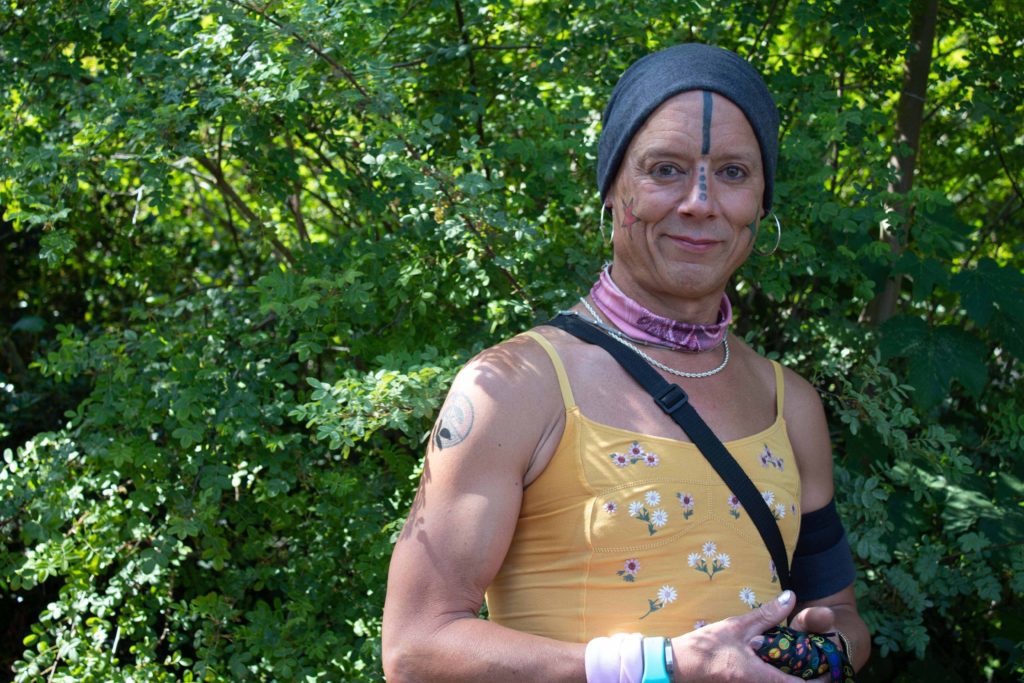
Powys Pride is now on the map with other rural Pride events in Wales this year. Some of them include Hay Pride, Pop-up Pride Walk, Autism Pride Festival, and Llanelli Pride. Ivy believes that these rural Pride events are the way to go for the LGBTQIA+ population in Wales. “There are rural prides popping up around Wales already. And we are one small piece of that. And I really hope that there will be more of these to come,” says Ivy.
But this Pride event hopes to be the catalyst for more LGBTQIA+ events in the area.
“This is the beginning of a long and beautiful, resplendent journey, where we’re going to build [LGBTQIA+] spaces across Powys. Pride is the antithesis of shame. It is a rejection of the shame other people tell us we should feel. But that’s their shame, not mine, so they can keep it. We can stand and demand better not just for ourselves, but for everyone. It’s definitely harder, but it’s not impossible.”
Photo reel – click for images.

















